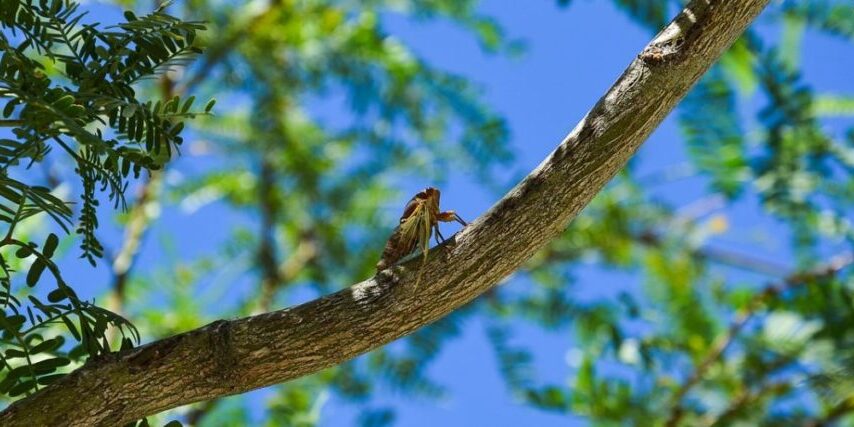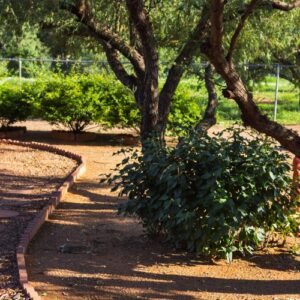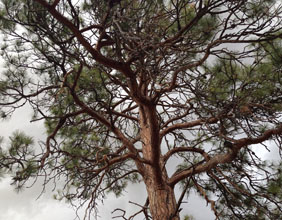
When you think of the sounds of summer, one of the most common sounds in the Phoenix and Anthem areas is noise from cicadas. In this article, we go over some common questions about these noisy neighbors, including how they are able to be so loud, if they can damage your trees, and why you generally hear them during the hottest parts of the day.
Are my trees making noise?
Summertime in southern Arizona comes with many unique phenomena – monsoons, dust storms, microbursts, flash flooding – and trees that appear to be buzzing or singing. The noisy trees are actually insects called cicadas, cleverly hidden amongst the tree’s branches. Between the projection of their sound, their clever hiding techniques, and their stealthy moves to avoid detection, cicadas are not easily spotted on trees, but they are widely heard.
I’ve read about 17-year cicadas, is that what these are?
Parts of the US are preparing for an influx of cicadas this year – they emerge from the ground only every 14 or 17 years, depending on the type.
Here in Arizona, cicadas emerge every year, so they are a well-recognized part of our summer months. This is because Arizona, host to a wide variety of insects, is home to dozens of species of cicadas, all with different cycles of emerging.
The most common type has a life cycle of 3 to 5 years. The first few years are spent underground as nymphs, and they then move above-ground to mate and lay eggs. They only live for a few more weeks after that.
If I hear cicadas, does that mean a monsoon is coming?
Yes and no. Cicadas signal that monsoon SEASON is approaching, but not an individual storm. You may start to hear them during the hottest and driest part of the year – usually late May through June – and they are gone by the end of August.
Cicadas are one of the few things out during the heat of a summer day. They spend most of their lives underground, then begin to emerge around June and live for another two to three weeks. During that short above-ground time, their focus is on finding a mate.
Cicadas prefer to be outdoors and active during the hotter parts of the day because their predators are less active. Plus, they have a unique cooling system that works similarly to an evaporative cooler to help them withstand higher temperatures. This system of cooling doesn’t work as well during humid weather, which is why the cicadas tend to emerge a few weeks before the monsoons appear.
By the time monsoon season has ended, the cicada season will also be over.
Why are cicadas so loud?
If you’ve ever had an outdoor event during the early summer months, the cicadas can be quite deafening. I’ve been to outdoor concerts where the cicadas seem just as loud as the musicians. This is because they are shaped like an instrument – similar to a violin or a guitar – with a hollow section of their bodies that helps the sound to resonate. The empty chamber amplifies the sound so that it can be heard from further away – up to 440 feet!
The sound that they make is the males’ mating call. If there are multiple cicadas, they will try to drown the others out, increasing their volume to compete for a (silent) female cicada’s attention.
Some cicadas make a buzzing or whirling noise, while other species create a sound that is more like a click.
Will cicadas harm my trees?
To lay her eggs, the female cicada creates a tiny cut in the branch. The eggs are deposited in this small slit. Under some circumstances, this can cause the branch to die or fall off. However, most consider this a “natural pruning process,” and it does not necessarily harm, and may even benefit, the tree. Most consider it a cosmetic issue.
You may also find an exoskeleton of the cicada nymph stuck to your tree trunk or a branch, but this will not cause any issues. Cicadas live as nymphs underground and then leave that exoskeleton behind once they migrate to the surface and become adult cicadas.
While adult cicadas rarely feed, when they do, they prefer the sap from trees, and they access this via twigs. Unlike other pests that can defoliate or weaken a tree by eating leaves or burrowing into trees, these native noisemakers won’t have a negative impact.
The one exception to this is if your tree is already disease-or-pest-ridden. If this is the case, any additional stress to a tree can cause issues. In those instances, it is probably too late for the trees anyway. The best prevention is to keep your trees healthy, well watered, and professionally pruned. Don’t add any stress from overpruning, and keep on top of any pest or disease issues.
If you have any other questions about cicadas and how they may affect your trees, please contact Titan Tree Care.
See Our Latest Articles
More Articles Like This

Titan Tree Care is a full-service tree care company located in Anthem, AZ and serving all of North Phoenix. We offer a wide range of services to meet your tree care needs, including tree and palm trimming, tree pruning, tree removal, stump grinding, and more. We also offer insect or disease treatments and fertilization services. We are dedicated to providing high-quality, safe, and effective tree care services to our customers and work hard to ensure that your trees are healthy and look their best.









